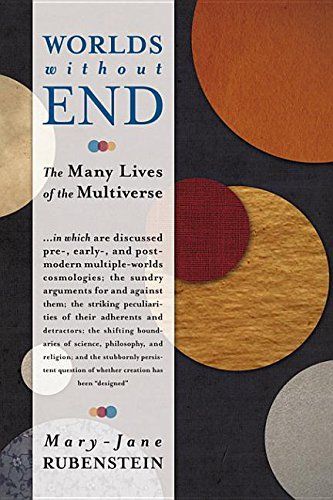
Worlds without End The Many Lives of the Multiverse
A religion professor elucidates the theory of the multiverse, its history, and its reception in science, philosophy, religion, and literature. Multiverse cosmologies imagine our universe as just one of a vast number of others. Beginning with ancient Atomist and Stoic philosophies, Mary-Jane Rubenstein links contemporary models of the multiverse to their forerunners and explores the reasons for their recent appearance. One concerns the so-called fine-tuning of the universe: nature's constants are so delicately calibrated that it seems they have been set just right to allow life to emerge. For some thinkers, these "fine-tunings" are evidence of the existence of God; for others, however, and for most physicists, "God" is an insufficient scientific explanation. Hence the multiverse’s allure: if all possible worlds exist somewhere, then like monkeys hammering out Shakespeare, one universe is bound to be suitable for life. Of course, this hypothesis replaces God with an equally baffling article of faith: the existence of universes beyond, before, or after our own, eternally generated yet forever inaccessible to observation or experiment. In their very efforts to sidestep metaphysics, theoretical physicists propose multiverse scenarios that collide with it and even produce counter-theological narratives. Far from invalidating multiverse hypotheses, Rubenstein argues, this interdisciplinary collision actually secures their scientific viability. We may therefore be witnessing a radical reconfiguration of physics, philosophy, and religion in the modern turn to the multiverse. “Rubenstein’s witty, thought-provoking history of philosophy and physics leaves one in awe of just how close Thomas Aquinas and American physicist Steven Weinberg are in spirit as they seek ultimate answers.”—Publishers Weekly “A fun, mind-stretching read, clear and enlightening.”—San Francisco Book Review